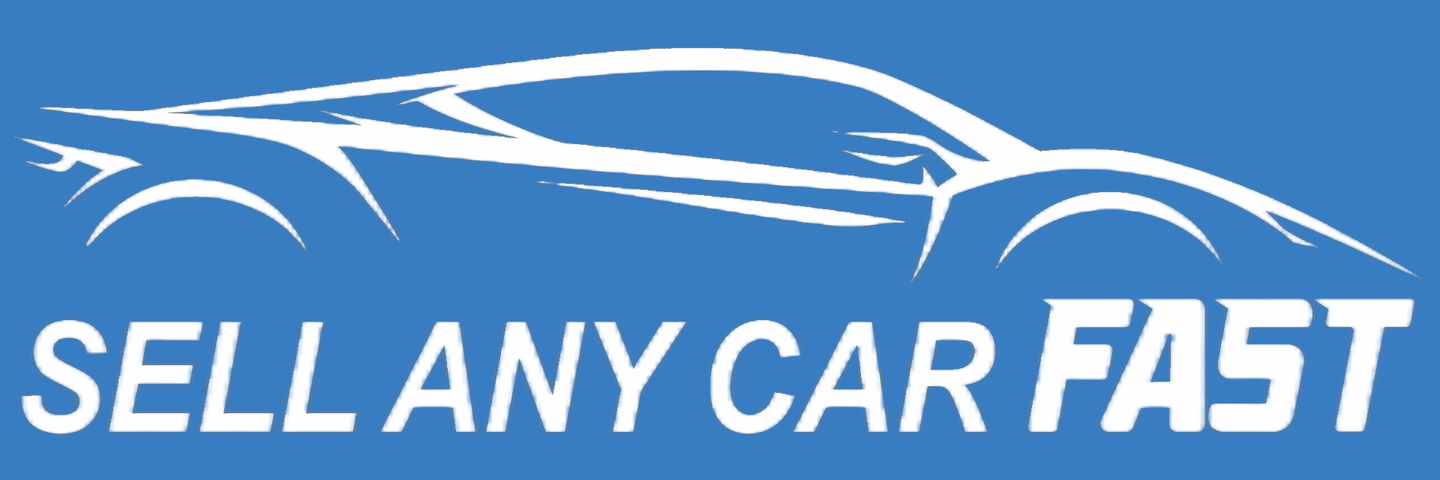Car Terms Explained: The A to Z Glossary
Whether you're selling privately or trading in, this glossary breaks down all the key terms you’ll hear during the car-selling process — from appraisals and PPSR checks to rego transfers and write-offs.
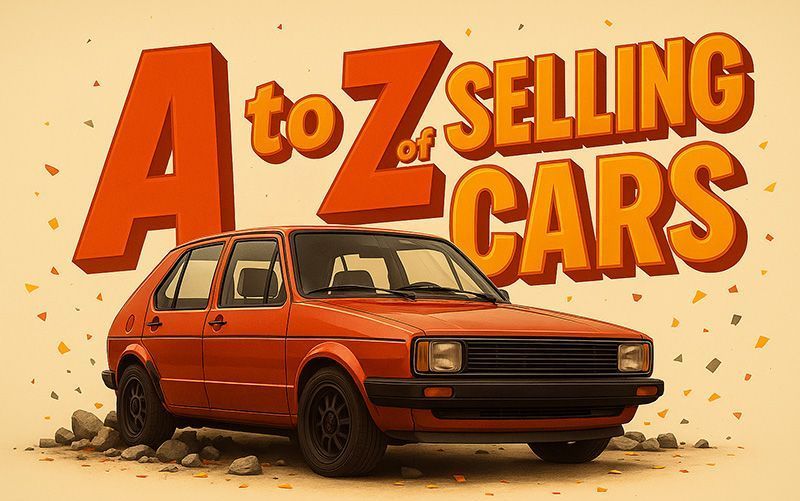
The A to Z of Selling Your Car
A
Admin Fees
Charges added by car dealerships or some online buying platforms to cover processing costs when selling or trading in your car.
Accrued Interest
The extra amount you may owe on a financed vehicle if you sell the car before the next scheduled payment date.
Aftermarket Warranty
A warranty purchased separately from the manufacturer, which may transfer to the new owner when you sell your car.
Agreement to Sell
A basic written agreement between you and a private buyer that outlines the details of the car sale. Check out what's needed when selling a car.
Asset Finance
A type of secured car loan where the vehicle itself is used as collateral, which must be paid out before you can sell the car.
Automatic Transmission
Cars with automatic transmissions are easier to sell, especially to first-time drivers or young buyers in Australia.
Accident History
A car with prior accident history may return a lower offer on a PPSR report or scare off buyers during a private sale.
B
Badge
The specific variant or trim level of a car, like Toyota Corolla Ascent Sport or Mazda 3 SP25. It affects resale value, features, and price.
Balance Owing
The amount left on your car loan. If you’re selling a car under finance, this needs to be paid out before ownership can legally transfer.
Build Date
The actual month and year the car was manufactured, which may be different from the compliance plate. Important when valuing your car accurately.
Book Value
A guide-based estimate of what your car is worth — usually lower than what the market or a motivated buyer will pay.
Buyers
Could be private, dealer, auction, or instant online buyers. Each one has different expectations, timelines, and payout amounts when buying your used car.
C
Cooling-Off Period
A short window where a buyer can back out of a car sale. Not offered in private sales in QLD, but important to understand if selling to a dealer.
Car Valuation
The process of working out what your car is worth based on age, kms, service history and market demand.
Compliance Date
The date your vehicle was certified to meet Australian standards. Often confused with the build date but important for accurate advertising.
Cancelled Rego
When a car’s registration has expired or been cancelled. You can still sell it, but only to a dealer or with a UVP.
Car Buying Service
A business that gives you a same-day offer and handles everything for you, like us.
Car Selling Search Index
Index page for common car selling searches.
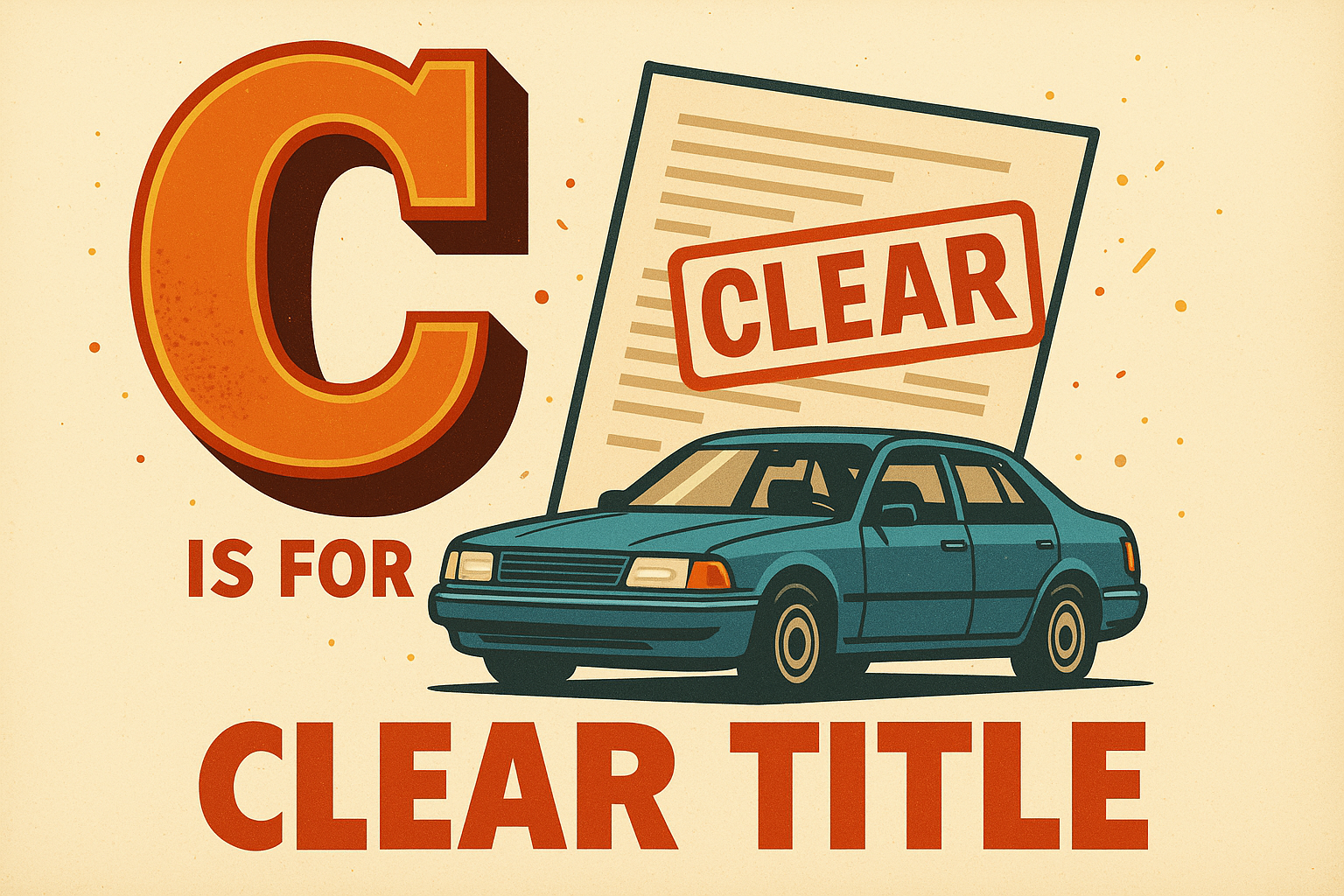
D
Dealer Trade-In – A dealer trade-in offers convenience, but the price is often lower than selling your car privately or online in Brisbane.
Depreciation – Depreciation refers to how your car’s value drops over time — a key factor in setting a realistic price when selling.
Detailing – Professional car detailing before a sale can increase buyer interest and help justify your asking price.
Damage Disclosure – Disclosing damage upfront, including hail dents or prior repairs, is essential for trust and legal protection in car sales.
Drive-Away Price – Buyers often ask for a "drive-away price" to know total costs, especially when selling cars privately with rego and RWC included.
E
Engine Light – A dashboard engine light will raise red flags — fix it or disclose it when trying to sell your car fast.
Excessive Kms – Cars with excessive kilometres may still sell well if serviced regularly, but high mileage often reduces resale value.
Enquiries – Good car ads generate quality buyer enquiries — clear photos and detailed descriptions boost your chances.
Exterior Condition – The exterior condition of your car is one of the first things buyers check — scratches and dents can lower offers.
Electric Vehicle (EV) – Selling an electric vehicle comes with different valuation rules, especially as EV demand grows across Australia.
F
Finance Payout – A finance payout is the remaining loan balance on your car — required to be cleared before you sell a car under finance in Australia.
Fair Market Value – Fair market value is what similar cars are currently selling for — not what you paid, but what buyers are willing to pay today.
Facebook Marketplace – Facebook Marketplace is a free way to sell your car privately, but expect tyre kickers, lowballers, and time-wasters.
Fuel Type – Your car’s fuel type — petrol, diesel, hybrid, or EV — can influence resale value, running costs, and buyer interest.
Full-Service History – Having a full-service history helps maximise your resale value by showing buyers you’ve looked after the car properly.
G
Gumtree – Gumtree is another platform to sell your used car in Australia, popular for cheap cars and unregistered vehicles.
Grey Import – Grey imports are cars brought in outside official channels and often sell for less due to parts and compliance concerns.
GPS – Factory GPS can be a small selling point, especially for older vehicles without Apple CarPlay or Android Auto.
Government Charges – Stamp duty and registration costs are government charges buyers consider when looking at the total cost of a used car.
Grading (Auction) – Auction grading ranks a car’s condition and affects the wholesale value when dealers buy used vehicles.
H
Hail Damage – Hail damage will significantly reduce the value of your car — especially if it's not repaired before sale.
History Report – A car history report (via PPSR) helps buyers confirm your vehicle isn't stolen, written off, or under finance.
High Demand Models – Popular used car models in high demand tend to sell faster and hold stronger resale value on the private market.
Hire Purchase – Selling a car under a hire purchase agreement may require extra paperwork or early payout negotiation.
Hybrid – Hybrid cars are increasingly popular with budget-conscious buyers — especially in urban areas with rising fuel costs.
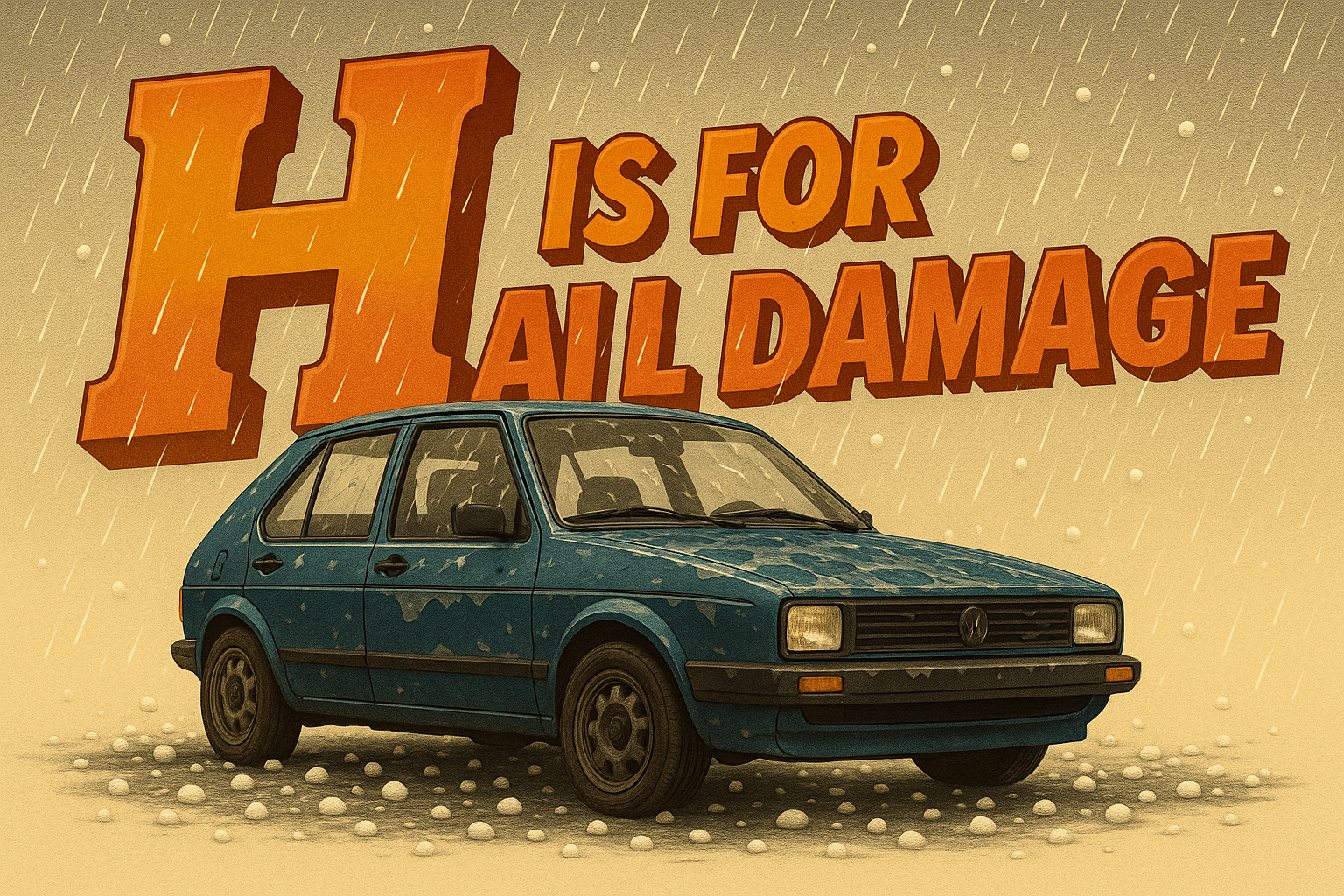
I
ID Check – A quick verification that your car’s VIN, registration, and ownership all match. Most buyers (and dealers) will run a PPSR check to confirm this.
Inspection – A physical check of the car’s condition, either by the buyer, a mobile mechanic, or a third-party inspector. It can make or break the sale — especially if hidden issues are found.
Instant Offer – A same-day price based on your car’s details. It’s fast and convenient, but the final offer may change after inspection or test drive.
Interior Condition – The state of your seats, dash, trim, and carpet. Rips, stains, or smells can lower your car’s value even if everything else is perfect.
Insurance Write-Off – A car that's been damaged and declared too costly to repair. If it’s been repaired and passed inspection, it’s legal to sell — but it’ll always be worth less.
J
Japanese Cars – Known for reliability and strong resale value. Brands like Toyota, Mazda, and Honda are often easier to sell and hold their price better in the used market.
Just Serviced – A recent logbook service can boost buyer confidence and help you get closer to your asking price. Make sure you’ve got the receipt or stamp to prove it.
Jumpstart – If your car’s battery is flat but otherwise fine, a jumpstart can get it moving again — just know buyers may see it as a red flag if it’s been sitting too long.
Jacked Suspension – Raised or modified suspension can limit your buyer pool and reduce your price. Many buyers prefer stock height for road cars and many heights are illegal across different states.
Junk Title – Usually a U.S. term, but used online to describe cars with serious damage or write-off history. If you're selling a junk car, full disclosure is key.
K
Kilometres – One of the first things buyers check. Higher kms usually mean lower offers, unless the car’s been well maintained with a full service history.
Keys – Having a spare key adds value. If you’re missing one, buyers might ask for a discount because replacements can be expensive.
Keyless Entry – A handy feature that buyers love but won’t pay extra for. Mention it anyway — it makes your car feel more modern.
KBB – Short for Kelley Blue Book — a U.S. pricing guide. Not used in Australia, but some sellers still reference it. Stick to real local values instead.
Knocks – Any ticking, tapping or clunking sounds from the engine or suspension. If you can hear it, so will the buyer — and it’ll definitely affect the price.
L
Logbook – A stamped record of services that helps prove your car’s been looked after.
Full logbooks = higher offers. Missing logbooks = questions.
Lowball Offer – A deliberately low offer from someone hoping you’ll just take the money. Expect them on Marketplace, especially if your ad says “urgent sale.”
Lease Vehicle – A car under a novated or personal lease. You’ll need to check payout figures and make sure it’s eligible for sale before listing it.
LED Headlights – A nice extra that adds a modern look, but doesn’t really move the price needle. Still worth mentioning in your ad.
Loan Payout – The amount left to pay off your car loan. You can still sell a car with a loan, but you’ll need to arrange for this to be cleared first.
Lemon – A slang term for a car with hidden faults, dodgy repairs, or constant problems. Buyers use it to describe cars that look fine on the surface but turn into a headache after the sale — and if you're selling one, it’s best to be upfront.
M
Market Price – Market price is what your car is worth today, based on real sales — not what it was worth last year or what you want for it. This is what buyers are paying now.
Meet – When the buyer and seller go to a specified location to sell the vehicle. Be sure to choose a safe location to meet.
Mobile RWC – A mobile mechanic who can inspect your car at home and issue a Roadworthy Certificate. Super handy for private sales in QLD.
Mod Plate – A modification plate shows that major mods (like engine swaps or suspension changes) have been inspected and approved.
Mileage Cap – A limit set in some car finance or lease contracts. Going over it can trigger fees and reduce resale value.
N
Negotiation – Pretty much expected in private sales. Decide your lowest price beforehand and stick to it, especially with time-wasters. Learn more about negotiating.
No Rego – You can still sell it, but private buyers will hesitate. Better to sell to a dealer or include a UVP if you’re serious about shifting it fast.
Novated Lease – A lease through your employer where the car is paid out of your salary. You’ll need a payout letter and possibly some HR paperwork to sell it.
Non-Runner – A car that doesn’t start or drive. Still sellable to dealers, wreckers, or as-is buyers — just price it accordingly.
Notice of Disposal – A short form normally requested by Services NSW after selling a car. It protects you from fines or tolls once the new owner takes over.
O
Online Valuation – A quick estimate based on your car’s age, model, kms, and condition. Great for getting a ballpark figure, but the final offer may change after inspection.
Ownership History – The number of previous owners. Fewer owners usually means better care and more trust — especially if it's been in the same hands for a long time.
Odometer Reading – The total kms your car has travelled. If it looks too low for the car’s age, buyers may question its accuracy.
Offer Sheet – A written summary of the offer made on your car — often used by dealers, tender buyers, or auction groups for formal quotes.
On-Road Costs – Extra costs like rego, stamp duty, and transfers. Private buyers often ask if your price includes them or not.
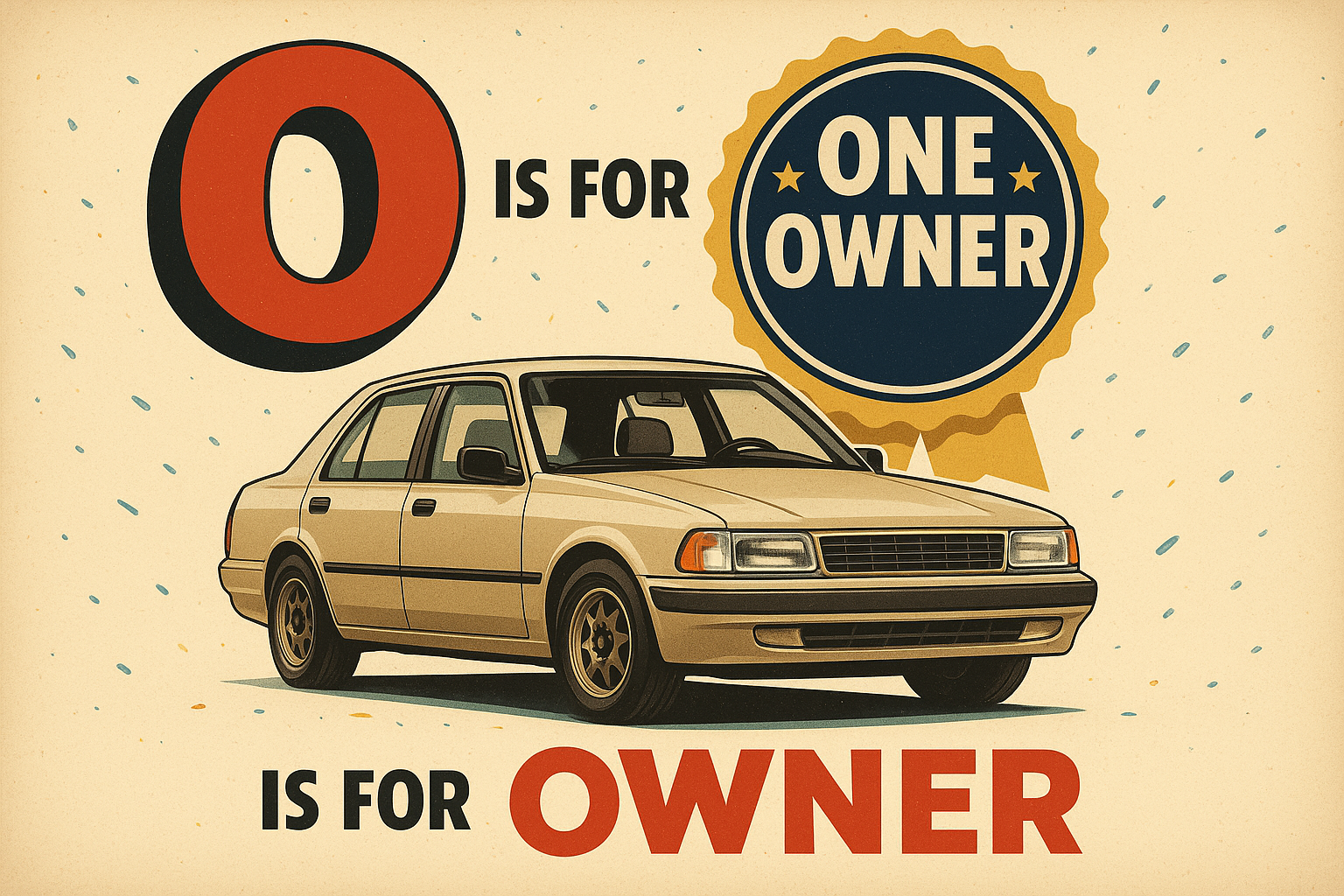
P
Pre-Purchase Inspection – A full mechanical check done by a third-party mechanic before a buyer commits. Common in private sales, especially if the buyer’s spending decent money or travelling from interstate. It can either seal the deal or kill it — so if your car’s solid, it’s worth encouraging.
Private Sale – Selling directly to another person. You’ll usually get more money, but you also deal with time-wasters, paperwork, and arranging inspections.
PPSR Check – A quick online report that tells buyers whether your car has finance owing, is stolen, or has been written off. Most will run one before handing over cash.
Paint Condition – Chips, fade, scratches or mismatched panels. Buyers spot this instantly, and it can affect resale more than you think — especially for dark colours.
Pending Finance – When a loan is still active on the car. You'll need to clear this with a payout figure before selling or transferring ownership.
Phone Enquiries – Messages, calls, and missed calls — mostly from people asking “still available?” or lowballing. Filtering serious buyers takes patience.
Q
Quick Sale – Selling fast usually means lowering your price — unless you’re dealing with someone who does this for a living and can handle everything same-day.
Quote Tool – Online calculators that give you a ballpark value for your car. Useful for private sellers, but often based on best-case scenarios.
QLD Rego Transfer – The process of transferring Queensland registration after a private sale in Queensland. You’ll need a Roadworthy Certificate to do this legally.
Qualified Buyer – Someone who’s ready to pay, not just “thinking about it.” They’ve got ID, funds sorted, and they actually show up when they say they will.
Quarter Panel Damage – Dents or creases in the rear quarter panel (behind the back door). Often hidden, expensive to fix, and common on cars with a side scrape.
R
Roadworthy Certificate (RWC) – A roadworthy certificate is a safety check that's required in QLD for private car sales. You don’t need one if you’re selling to a dealer or car buying service.
Resale Value – How much your car is worth in the used market compared to when it was new. Some brands hold value better than others — think Toyota or Mazda.
Rust Spots – Common on older cars, especially around the windscreen or wheel arches. They drop the value and will definitely show up during inspections.
Reconditioning Costs – What a dealer or wholesaler expects to spend fixing your car before reselling it. The more it needs, the lower the offer.
Registration Expiry – If your rego is about to run out, it might scare off private buyers. You can either renew it or drop your price accordingly.
S
Service History – A log of your car’s past maintenance. Full service history (especially from the dealer) can boost trust and bump up your sale price.
Scratches – Buyers will notice every scratch, even if they say they don’t care. A few minor ones are expected, but deep or widespread marks will drag your price down.
Selling Your Car – We've compiled the full guide on how to sell a car in QLD.
Stolen Check – A PPSR report will show if the car’s listed as stolen. If you're buying or selling privately, always run one to avoid drama later.
Suspension – Noises like clunks, knocks or sagging can signal suspension issues. Buyers test this on uneven roads and speed bumps — so you should too.
Spare Tyre – Still matters. If it’s missing, buyers may negotiate you down or assume you haven’t looked after the car properly.
T
Tyres – One of the first things buyers check. If they’re bald, mismatched or close to needing replacement, your offer will take a hit.
Transmission – Whether it’s auto or manual matters for resale. Manuals can be harder to sell unless it's a performance or tradie car.
Trade Plate – Used by dealers to test-drive unregistered vehicles. If you're selling to a licensed buyer, they’ll usually show up with one.
Trim Level – Also called a badge, it tells buyers what features the car comes with — like the difference between a base model and top-spec.
Timing Belt – A costly service item. If yours is due, buyers may ask for a discount or walk away — especially on older cars.
U
UVP (Unregistered Vehicle Permit) – Lets a buyer drive your unregistered car legally to get it home or inspected. Handy for private sales without rego.
Used Car – Technically anything that’s had one or more owners. In resale terms, condition and service history matter way more than just age.
Undisclosed Damage – Damage not mentioned in your ad but obvious in person. This kills trust fast — and can kill the deal just as quickly.
Under Finance – A car that still has money owing. It’s legal to sell, but you’ll need a payout letter and some coordination between seller, buyer, and lender.
Uber Use – If your car’s been used for rideshare, it can lower resale value — especially if it’s done big kms or shows heavy wear inside.
V
Valuation Tool – An online form that gives a quick price estimate based on market data. Good for getting a feel, but not always the final price.
Vehicle Identification Number (VIN) – A VIN is your cars unique 17-digit ID. It may be requested to check for stolen status, finance owing, and to confirm build specs or factory features.
Vibe – Sounds dumb, but it’s real. A car that feels looked-after (clean, well-presented, smells right) gets better offers than one that doesn’t.
V5 Document – The UK version of rego papers. Not common here, but some imported cars still reference it in listings — mainly for expats.
Vehicle History – Everything your car’s been through: services, repairs, write-offs, odometer checks, and ownership transfers. Buyers want to see it all.
W
Write-Off – A car that’s been damaged badly enough for insurance to declare it uneconomical to repair. Even if it’s been fixed, it’ll always be worth less. Often 30-40% less. Learn more about selling a write-off.
Warranty – Most private sales don’t include a warranty, but buyers might still ask. If it’s a dealer sale, you may be legally required to provide one depending on the state.
Windscreen – Chips and cracks are common, but they’re a quick red flag for buyers. Getting it fixed before listing can help avoid awkward price drops later.
Wheel Damage – Scraped or dented rims from gutters or potholes. It’s cosmetic, but buyers will spot it and use it to negotiate.
Wipers – A basic thing that makes a difference during a test drive. If they’re streaky or noisy, replace them — it’s a $20 fix that shows care.
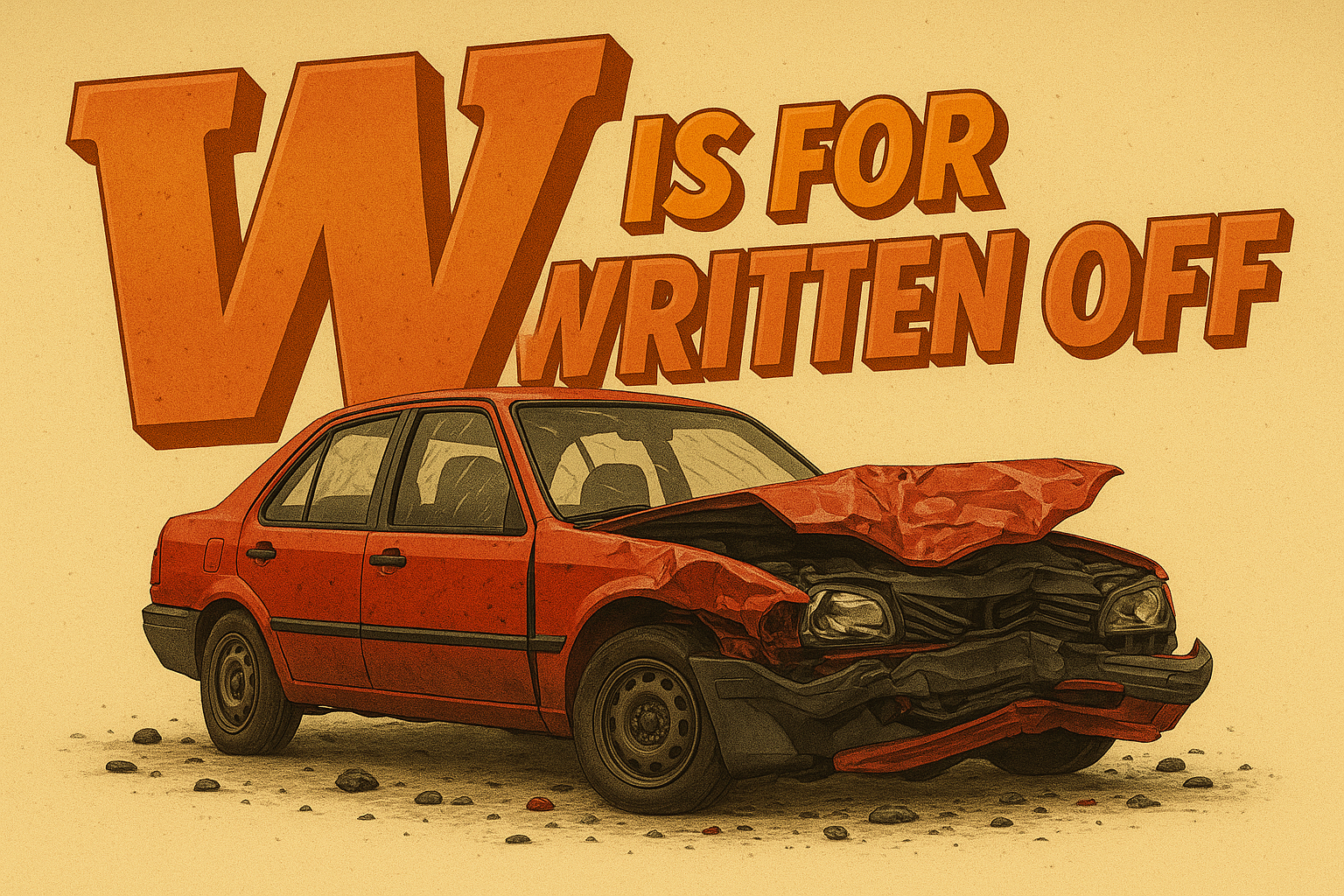
X
I got nothing.
Y
Young Driver Appeal – Small cars with auto, low kms, and Bluetooth sell faster to L-platers and P-platers — especially hatchbacks under $10k.
Year Built vs Complied – The build date is when the car was made. The compliance date is when it met Australian standards. They can be months apart — important when selling.
YouTube Review – Smart buyers research common faults and features before inspecting. Don’t be surprised if someone quotes a video back to you.
Yard Ready – A term used by dealers. It means the car doesn’t need any work before it’s ready to resell. The closer yours is to “yard ready,” the higher the offer.
Z
Zero Stress – What sellers really want. No tyre kickers, no RWC hassle, no late-night meetups. That’s where car buying services like us come in.
Zoom Call Inspection – Handy if the buyer’s interstate or can’t view in person. Be ready to show the car live and answer questions on the spot.
Zippy Hatchback – Small, easy-to-sell city cars like the Yaris, Swift, or Mazda2. Great fuel economy and appeal to younger buyers or commuters.
Zinc Protection – A rustproofing coating applied underneath or in the wheel wells. Some buyers ask about it, especially for older cars.
